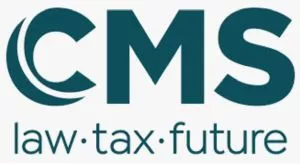- within Media, Telecoms, IT and Entertainment topic(s)
- with Finance and Tax Executives
On 30 September 2025, bill of law 8625 on the media (the "Bill of Law") was filed with the Parliament.
The Bill of Law implements (i) Regulation (EU) 2024/1083, which establishes a common framework for media services in the internal market, including the protection of editorial independence and journalistic sources (the so-called European regulation on media freedom) and amending Directive 2010/13/EU (the Audiovisual Media Services Directive) and (ii) Regulation (EU) 2024/900 on the transparency and targeting of political advertising.
The Bill of Law introduces a common regulatory regime for all media, including traditional media (such as audiovisual and broadcasting), as well as new media (such as video-sharing platform providers and influencers) in order to protect recipients of media services. It also recognises the growing role of content creators, commonly known as 'influencers', by introducing a specific definition in this respect.
Influencers
Influencers are users who generate and upload programmes on an online platform in exchange for financial or other compensation. They use their reputation among their audience to share content with the public, with the aim of promoting goods, services or any cause, either directly or indirectly. Content creators join the group of media service providers subject to the Bill of Law if they are established in the Grand Duchy of Luxembourg.
In this capacity, they must ensure that up-to-date information is easily accessible to the public. This information should include details such as the company name, contact details, and the names of direct and indirect owners and economic beneficiaries.
They must also clearly identify any advertising or sponsored content. This content must not encourage behaviour that is prejudicial to health, safety or the protection of the environment. More generally, they must not broadcast content that is contrary to human dignity or discriminatory.
Sponsorship and product placement are permitted, but content creators must meet specific information and requirements in this context.
In all cases, each media service must be fully registered, and the registration must be kept for six months. It may be issued to the Autorité luxembourgeoise indépendante des médias (Independent Luxembourg Media Authority, the "the Authority") upon request.
Video sharing platforms
The Bill of Law also covers video-sharing platforms operating within Luxembourg's jurisdiction. These platforms must be notified to the Authority by their providers no later than one month after launch. In general, providers must give the Authority all the information it needs to carry out its supervision.
Providers of video-sharing platforms are subject to publication obligations, particularly regarding commercial communications, and they must take all necessary measures to protect minors and the general public. These measures must be appropriate and proportionate, taking into account the nature of the content, the potential harm it could cause, the characteristics of those to be protected, and the rights and legitimate interests at stake.
This includes the interests of video-sharing platform providers, users who created or uploaded content, and the general public. These measures include i.a. (i) providing functionality to report content that is likely to harm the physical, mental or moral development of a minor, or that contains incitement to violence, hatred, terrorism, child pornography, racism or xenophobia; (ii) providing functionality to report whether videos created and uploaded by users contain commercial communications; (iii) verifying the age of users of video-sharing platforms; and (iv) using transparent, easy-to-use and effective procedures for handling and resolving user complaints.
The content of this article is intended to provide a general guide to the subject matter. Specialist advice should be sought about your specific circumstances.






